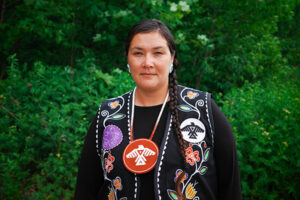Anishinabek Nation will be idle no more if Bill 5 passes in current form

ANISHINABEK NATION HEAD OFFICE (May 27, 2025) – The Anishinabek Nation continues to call upon Ontario Premier Doug Ford and the Government of Ontario to immediately halt the advancement of Bill 5, Protect Ontario by Unleashing our Economy Act, 2025, withdraw it, and begin an engagement process of meaningful consultation, consent, and accommodation, most recently at the Legislative Assembly of Ontario Standing Committee on the Interior on May 22.
The Government of Ontario’s advancement of Bill 5 in its current form continues to ignore, violate, and threaten the inherent rights of Anishinabek people and the foundational principles of the treaty relationship with the Crown.
“The Government of Ontario does not have the authority to interfere with Treaties that gave rise to the Constitution of this country called Canada, and it certainly does not have the authority to interfere with our inherent rights,” states Anishinabek Nation Grand Council Chief Linda Debassige. “Yet, that is precisely what Bill 5 in its current form is doing, and simply put, we will not stand for it. But what we will stand for is our inherent and Treaty rights; and so, we caution the provincial government that should Bill 5 proceed in its current form, we will be idle no more.”
Idle No More is a grassroots movement that encompasses broad topics regarding Indigenous rights, sovereignty, and environmental protection, and was born in 2012, out of opposition to the introduction of federal government Bill C-45, which diminished the rights and authority of First Nations while simplifying the process for governments and businesses to push through projects without strict environmental assessment. The current Government of Ontario’s Bill 5 hearkens back to previous governments’ legislation intended to bypass inherent and treaty rights, not unlike Bill C-45.
“We see history repeating itself far too often when it comes to external governments going to great lengths to go around us, above us, or avoid us altogether when it comes to legislation—whether it’s the federal government or provincial—in an attempt to bypass meaningful engagement with the legitimate rights holders and stewards of these lands and obtain our consent,” states Grand Council Chief Debassige. “Ontario is not respecting the original relationship our First Nations have with the Crown by virtue of treaties, which supersedes provincial legislation. Ontario is interfering in our original relationship with the Crown, which currently has outstanding matters that require correction. At various points in our relationship with the Crown, our treaty partners have not always upheld their responsibilities and obligations outlined within the treaties. We continue to hold our treaty partners accountable, even if it takes us 147 years to settle aspects of these treaties, like we did with the Robinson Huron Treaty annuities case, and soon with the Robinson Superior Treaty annuities. And we will hold the Government of Ontario accountable, too, for their continued interference. Ontario has a constitutional duty to consult, and First Nations are demanding free, prior, and informed consent.”
Presently, Anishinabek Nation member First Nations in the Northern Superior Region will be negotiating court-ordered aspects of the Robinson Superior Treaty annuities, which was signed on September 7, 1850. Bill 5, in its current form, stands to negatively impact aspects of the treaty as it interferes with a court order.
Bill 5 proposes amendments to nine pieces of Ontario legislation, including the Ontario Heritage Act, the Mining Act, the Endangered Species Act, and enacting one new Act, Special Economic Zones Act, all with the intent of increasing economic development at the expense of environmental and species protections, and historical evidence of First Nations that predates confederation.
“To all investors and companies looking to invest in Ontario, we urge you to do your due diligence and speak directly to our First Nations. While both federal and provincial leaders claim Canada and Ontario to be ‘Open for business’ or to ‘Build, baby, build’, First Nations resources are not Ontario’s nor Canada’s resources, nor any other organization claiming to be rights holders, such as the Métis Nation of Ontario, to do as they wish or claim benefit and profit from. Only our First Nations can assure you that it is safe to invest in projects on our lands and should be consulted on anything that happens or is to happen on Treaty and Aboriginal Title territory,” states Grand Council Chief Debassige. “In addition to our inherent and treaty rights, our Aboriginal rights are further recognized and affirmed in Section 35 of the Constitution Act, 1982, and our self-determination is reaffirmed in international human rights frameworks like the United Nations Declaration on the Rights of Indigenous Peoples.”

